Opinion: A “Pandemic of the Unvaccinated”: Blaming the Unvaccinated Will Get the U.S. Nowhere
Joe Biden addressing unvaccinated individuals in the United States.
The United States is more divided than ever, but at this time, it’s due to much more than simply politics. As coronavirus cases continue to soar, the unvaccinated and vaccinated continue to split the country. Phrases such as “a pandemic of the unvaccinated” are part of the problem.
With the new variant Omicron spiking cases, medical professionals and politicians are using this phrase even more frequently.
“This is a pandemic of the unvaccinated,” President Joe Biden explained in a speech on September 9, 2021. “And it’s caused by the fact that despite America having an unprecedented and successful vaccination program, despite the fact that for almost five months free vaccines have been available in 80,000 different locations, we still have nearly 80 million Americans who have failed to get the shot…We’ve been patient, but our patience is wearing thin.”
This tactic of pointing the finger at the unvaccinated for the soaring coronavirus cases only perpetuates the friction in the United States. Further, doing so is proving to have minimal impact on vaccination rates. Rather, the government must address and alleviate the concerns of those who are unvaccinated.
It is important to understand why 15%, as the Center for Disease Control and Prevention (CDC) reports, of adults in the United States have chosen not to get the COVID-19 vaccine. There isn’t just one explanation.
According to the U.S. Census Bureau, there are a variety of reasons adults remain unvaccinated. About 50% of those surveyed were concerned about the possible negative side effects of getting the vaccine. 42% of those surveyed “don’t trust the COVID-19 vaccine.” Aside from concerns regarding safety and people’s lack of trust in the vaccine, less than 10% reported that they were unvaccinated because of their doctor’s recommendation. Lastly, 2% are not vaccinated because of difficulty obtaining the shot.
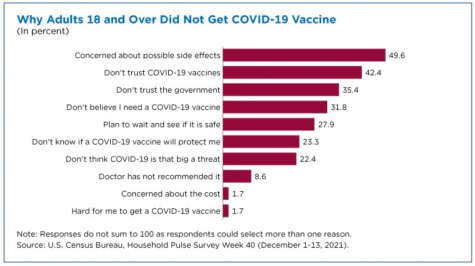
In order to increase vaccination rates and beat the pandemic once and for all, the government must tackle the reasons behind vaccine hesitancy.
First, the government must reiterate the safety and effectiveness of the vaccine. Although the government is emphasizing the vaccine’s safety, the unvaccinated in America don’t necessarily trust the information communicated from the country’s leaders. Focusing on the primary concerns of the unvaccinated and reducing their apprehension is the key to increasing vaccination rates. While education about the COVID-19 vaccine is not a huge concern in the U.S., having medical professionals like Dr. Fauci and politicians such as Joe Biden talking about the importance of the vaccine can only go so far.
Even the song “It Was a Masked Christmas” by Jimmy Fallon, Ariana Grande, and Megan Thee Stallion promoting vaccination is not truly effective without immediate action from the country’s leaders to relieve the concerns of the unvaccinated.
However, other reasons for remaining unvaccinated cannot be disregarded. Those who do not get the vaccine due to the recommendation of their doctor must be respected. Instead of getting vaccinated, those who don’t get the vaccine for medical reasons should instead make sure to get tested weekly.
Those unvaccinated who face challenges obtaining the vaccine must be assisted. People who live in large, populous cities such as New York City and Los Angeles do not face any obstacles getting the vaccine. But those who have no access to the internet, live far from medical providers, lack transportation, or have occupations that prevent them from taking time off to recover from the side effects of the vaccine need resources and support immediately. Addressing the public’s concerns and recognizing citizens’ unique situations is necessary to getting unvaccinated Americans vaccinated. While the government may acknowledge the problems citizens face when obtaining the vaccine, 2% of those unvaccinated continue to confront challenges when trying to get the vaccine. “As the Administration works to get even more people vaccinated, President Biden will call on employers across America to do everything they can to help their employees – and their communities – get vaccinated,” the White House explained in April. While employers must provide their employees with up to four hours to get the vaccine, getting the vaccine continues to be difficult for many. Employers are not required to reimburse their employees for transportation costs. More work needs to be done on the government’s end to ensure that all citizens have the opportunity to get vaccinated.
Secondly, gaining the public’s trust needs to be at the top of the Biden administration’s to-do list. How can vaccination rates increase if a percentage of Americans remain skeptical of the government’s actions to reduce COVID-19 cases?
Personal exchanges between those unvaccinated and public health officials need to take place. Those who are unvaccinated are people. Though their concerns may be disproved, their feelings are absolutely valid. Community members who are trusted by unvaccinated citizens can play a large role in persuading them to get vaccinated. For example, personal physicians can address their patients’ concerns about the vaccine. Though doctors continue to address patients’ worries about the vaccine, more emphasis must be put on these interactions by the government.
The words of others, including the president of the United States or words from Olivia Rodrigo advocating for the vaccine, are not going to make a difference and instead may cause more division.
Lastly, the government should discontinue its actions that exacerbate the friction between vaccinated and unvaccinated individuals.
Vaccine mandates, though effective, only make those unvaccinated more confident in their decision not to get the vaccine. Evidence illustrates that mandates can perpetuate distrust of medical professionals and the government.
More importantly, vaccine mandates don’t actually address the real reasons for vaccine hesitancy. Forcing someone to become vaccinated when they still have unanswered questions and concerns is not only ineffective but also unreasonable. Widespread mandating of the vaccine will eventually have to take place, as it is the only way to return to normalcy. But, before mandates can start taking place, the government must do a better job of addressing vaccine reluctance.
Additionally, mandating the vaccine, while enforced to prevent the spread of COVID-19, can harm vulnerable groups of the population, which expands inequality. Since the Los Angeles Unified and neighboring school districts have mandated the vaccine, the education of some students has been negatively affected. According to a Mercury News analysis, in Alameda County, 44% of Black students, ages 12 to 17, are unvaccinated. Meanwhile, 95% of Asians, 70% of Whites, and 67% of Latinos are vaccinated. Rather than proposing vaccine mandates, the government needs to understand why children and adults within specific groups in the United States remain unvaccinated.
While striving to have all U.S. citizens vaccinated is a noble goal, there comes a point where the government has to accept that there will always be a percentage of citizens who will not get vaccinated. Therefore, the government needs to come up with other ways, which do not solely rely on complete vaccination, to beat the pandemic.
Resentment against those unvaccinated, which is provoked by phrases like “a pandemic of the unvaccinated,” will make beating the pandemic even more challenging. Our country needs to stop widening the divide between the vaccinated and unvaccinated. Our country is in this pandemic together. Or, at least, we should be.

Sophene is a senior and in her sixth year on Spyglass. In her free time, she enjoys baking, spending time with family, and watching Gilmore Girls and Friends.




























![Dr. Zanita Kelly, Director of Lower and Middle School, pictured above, and the rest of Westridge Administration were instrumental to providing Westridge faculty and staff the support they needed after the Eaton fire. "[Teachers] are part of the community," said Dr. Kelly. "Just like our families and students."](https://westridgespyglass.org/wp-content/uploads/2025/03/dr.-kellyyy-1-e1748143600809.png)






















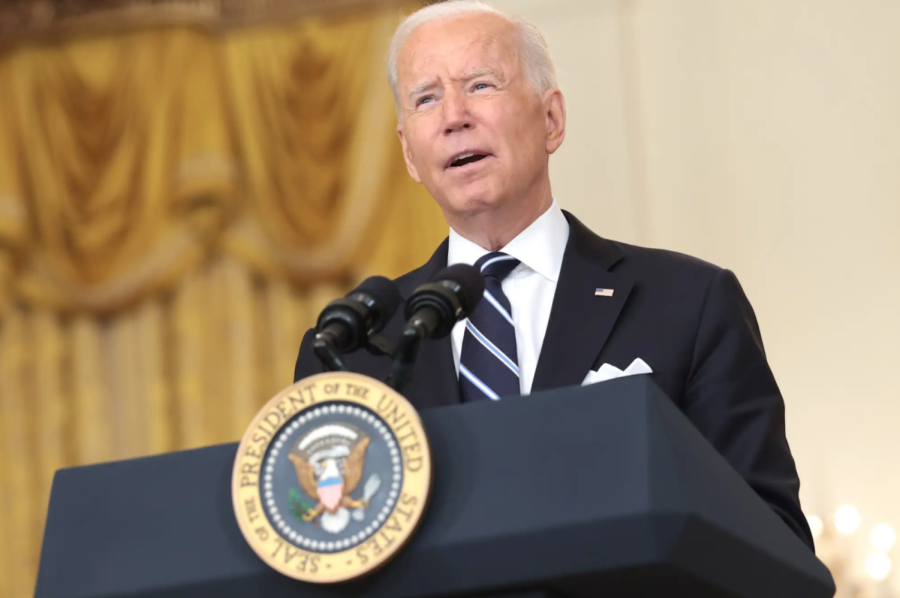
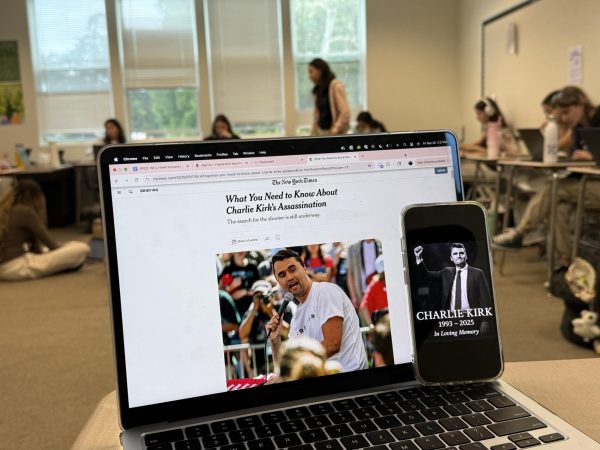
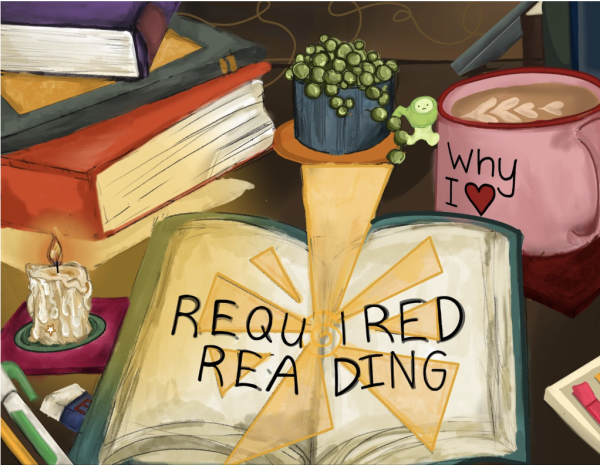
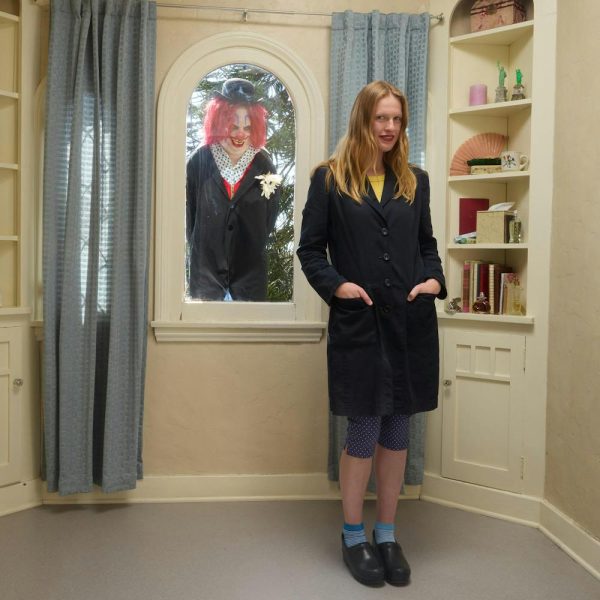


Joel Farabee • Jan 22, 2022 at 10:29 pm
I find it interesting how you, Sophene, are so strongly opposed to vaccine mandates yet want Westridge to become more strict with their uniform policies. You wanted Westridge to enforce uniform policies more strictly because if they don’t, “how will they ever control their student body and enforce other polices?”. Does the same not apply to the US government and its citizens with vaccines? They’re not completely related, but the concepts you presented in your arguments reminded me of each other. Let me know…
Alle B. • Jan 22, 2022 at 10:22 pm
To me, the author comes off as more focused on the unvaccinated getting a bad rap than the fixing the actual problem at hand. There is nothing wrong with Olivia Rodrigo, an 18-year-old singer with a large platform, encouraging others to get vaccinated. You want the government to focus more on debunking misinformation, but what happens when the unvaccinated refuse to get vaccinated because of conspiracy theories and a distrust and distaste for Democrats? For the article’s entirety, it felt like you were avoiding those types of people and their reasoning. At some point, some blame needs to be placed on those people; they’re not completely innocent.
You write, “Though their concerns may be disproved, their feelings are absolutely valid.” At what point do their feelings become ‘ridiculous’ because they’re based on misinformation? Doesn’t the right always like to say, “FACTS OVER FEELINGS”?
In regards to the actual article, I think it was well-researched, but misses some important notes. I would love for you to elaborate more on what you suggest the government do. Additionally, I thought referencing pop culture moments where people were encouraged to get vaccinated was unnecessary; it felt out of place when introduced. Anyways, I hope you take some of my thoughts into consideration.
Thank you for taking the time to write this article, and share your thoughts. No matter how much I disagreed with it, I still love and respect journalism. #GoYouthJournalism!